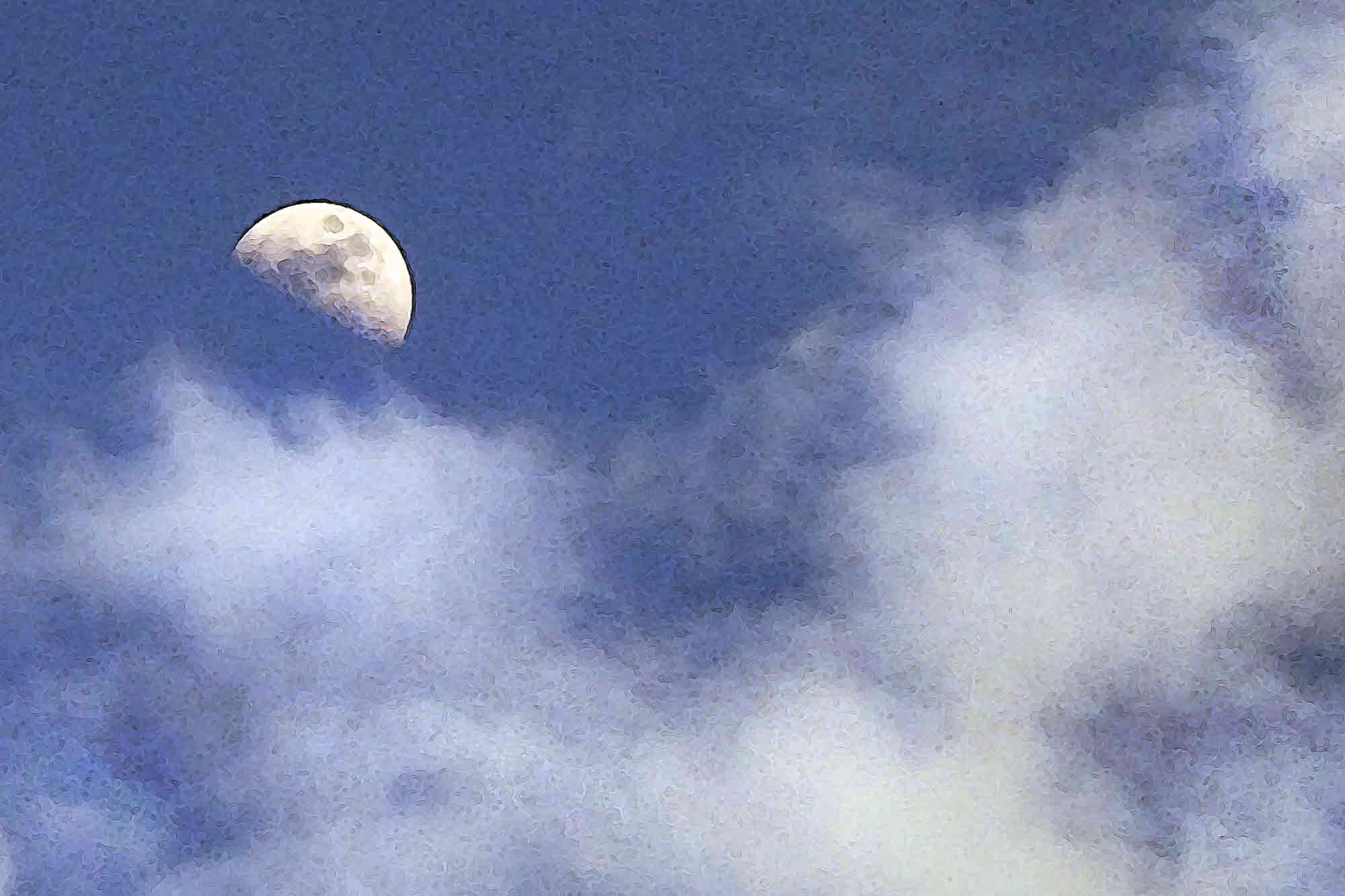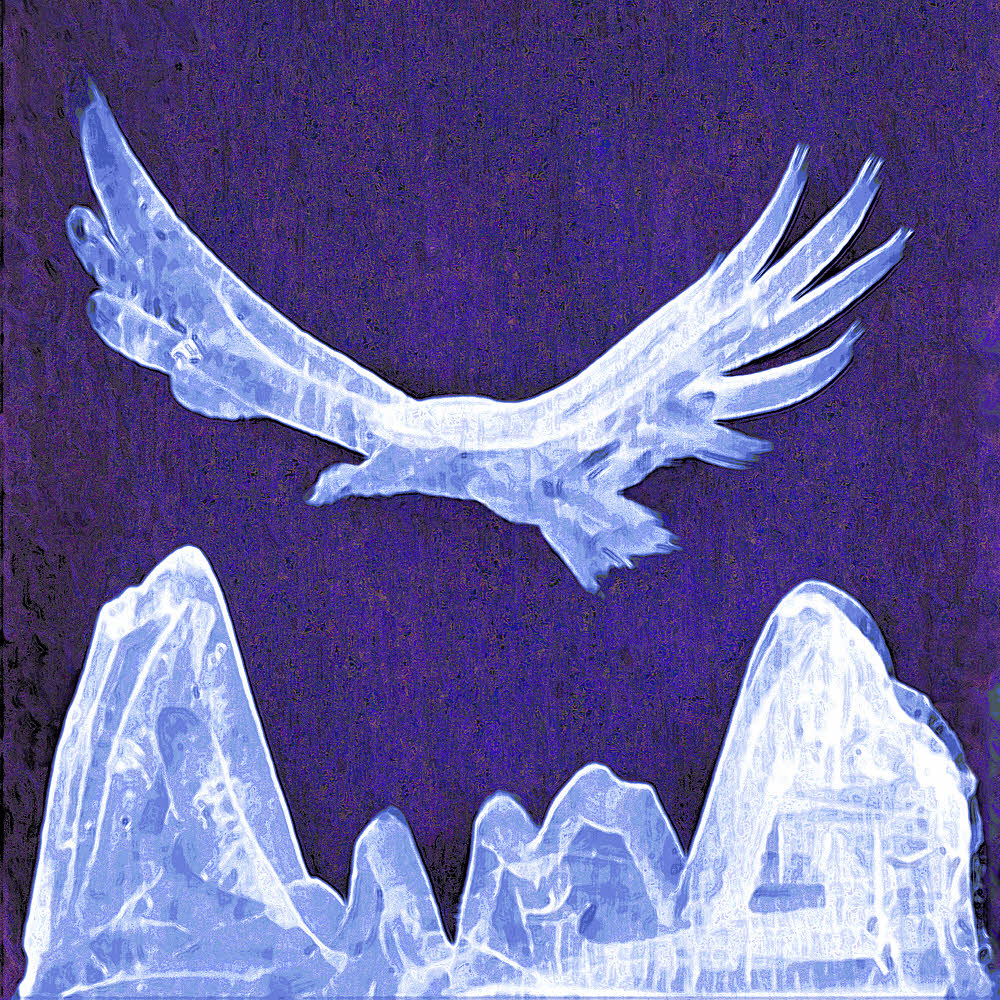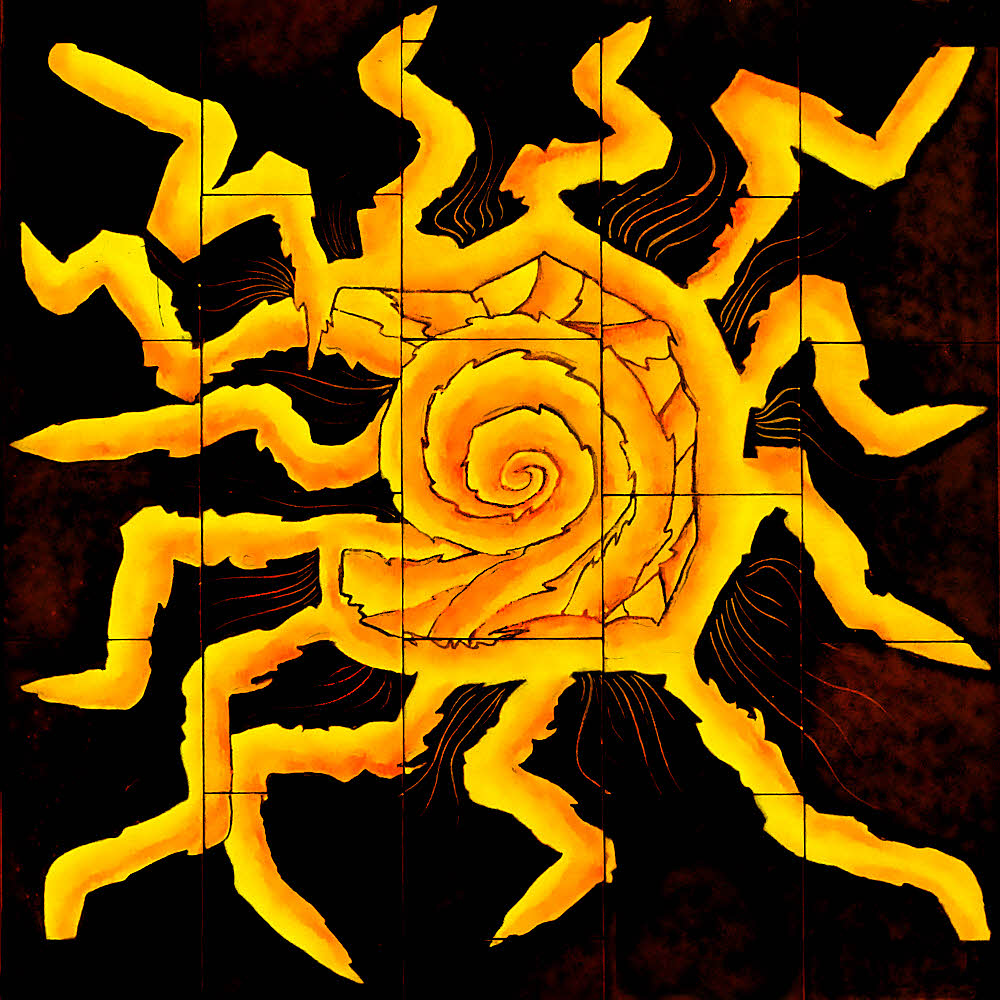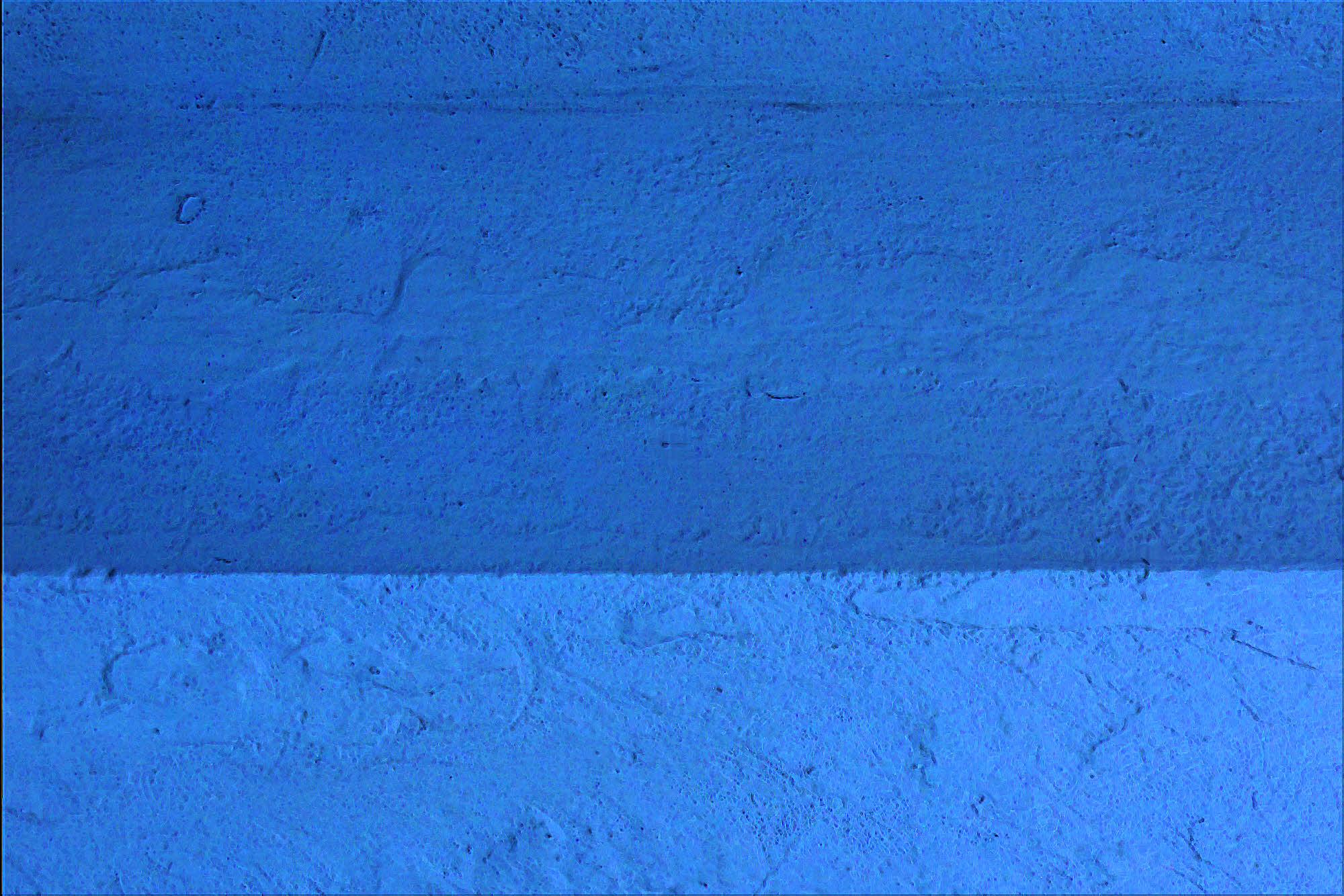Traditionally backpackers carried iodine tablets to treat back country water. Some used ordinary chlorine bleach, even though it's less effective. Some claim they never treat their water, but during the last couple of decades expensive and heavy water filters have become the standard solution. These days hardly anyone blinks an eye at spending a hundred dollars or more for a water filter, or bothers to think about carrying an extra pound or two of dead weight.

Instead of having a pocketable green glass bottle containing a few brown iodine pills, which take a while to render water reasonably safe, backpackers these days normally tote a gizmo the size of an espresso maker, complete with hoses and pump. Waiting 15 or 20 minutes is too long. People would rather squat by a stream, hook up the filter, and work up a sweat horsing a reluctant trickle into bottle after bottle, saving no time, and carry several pounds of water as they resume hiking.
Go figure.
There are several side effects to carrying a filter. One is weight, of course. Another is bulk. Expense. We already mentioned that one too. Complexity. Check. One thing people seldom talk about though is risk. It's easy to screw up while using a filter.
A filter relies on two things. One is the filter's designed ability to remove critters, gunk, and yucky chemicals. The other is cleanliness. User responsibility there. You have to keep the filter clean, folks.
Obviously, but few people think enough about this. After all, a water filter for backpacking use is helpful, healthful, and is cleanliness itself. It seems to generate spotlessness just by being there. Only it ain't so.
A filter is a tool. A machine, and is simply ordinary matter inhabiting a particular form. There is nothing magical about a water filter. It is not perennially pure. It does not create goodness. It can become contaminated, and can then pass that contamination on to you. Tricky.
Every filter has a dirty end and a clean end. I have very little experience with filters, but I have tried a couple of gravity-powered ones that I rigged up, and even based on my vanishingly small range of experience I feel absolutely confident in saying that it's hard, hard, hard to keep the dirty end and the clean end apart. Every day. All day. Without fail.
I can't imagine a perfect way to do this, but I can remember the times I've seen people filter water, then wind everything back into a nice tight package and stuff the whole shebang back into the pack. Wet. Where the contaminated end of the apparatus can work its magic on the clean end. Out of sight, out of mind. Until the diarrhea hits.
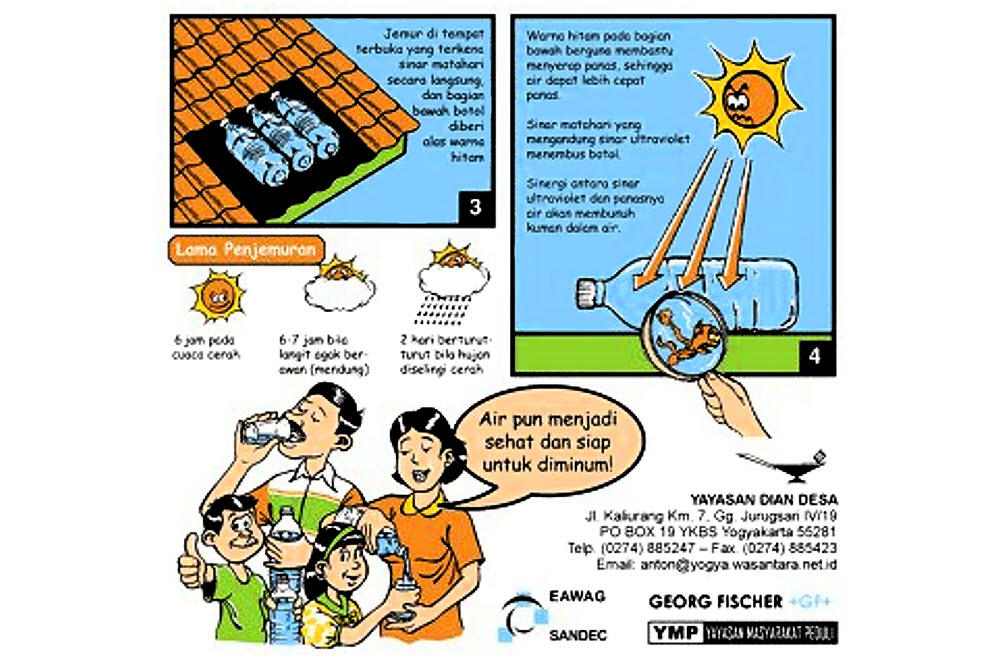
And I've seen someone use a communal filter, first pumping water then dragging the outlet hose through dirt, ashes, and finally horse manure before hanging it from a tree where it would stay safe and clean (too late!) for the rest of the party to use later.
Personally, I've settled on a small water bottle with a built in filter, with chlorine dioxide to back it up. I can stop, scoop up water, and drink it immediately, use the bottle with filter removed as a bath bucket, or carry raw water in the bottle, with the filter in place, for later sipping. The chemical treatment is handy to treat a bunch of water overnight, or simply as a backup.
That's all pretty good.
But something interesting came along recently. A way to treat water without a filter, and without chemicals. Practically speaking, without anything.
Let's first take one step back and praise Ray Jardine.
If he didn't invent light backpacking, then he at least reminded the world that it was possible. I'm easy with saying that he reinvented it. In some circles these days he's denigrated for various reasons, one of which seems to be that though he either invented a lot of techniques, or at least popularized and promoted them to a skeptical world, in some ways his techniques seem stuck in the middle 1980s. Be that as it may (or may not) be, one of his ideas in the water world is really cool.
And that is carrying plastic soft drink bottles instead of huge aluminum canteens or those thick, bulky, ponderous Nalgene bottles that seem to be required kit for backpackers. Sure, I'm dated myself. Things have changed again. Nalgene is now out. Today, if you want to be a cool backpacker, you have to carry the equally expensive, bulky, and heavy Lexan bottles. But you now have designer colors. Aerodynamic shapes. Coming soon: tail fins.
Tail fins, I miss. Not that I ever liked them, but they were big once, during a time I remember well. And you could be sure that if you saw tail fins, a car was attached. In the tail fin era cars were ugly, a situation that the fins did not tend to ameliorate. At all. Not even a little. But in those days cars were big, had shiny bumpers the size of sofas, and were slow to maneuver. And easier to avoid. Life was simpler. But their day has passed, as has the era of Nalgene bottles, and as the era of Lexan bottles will too.
For bulk water, I avoid the above by using Platypus bladders. Get one as big as you can stand to think about and empty it, it folds flat, and never weighs more than an ounce or two. Jardine's idea was similar though slightly bulkier. He simply used garbage.
Buy a liter of any fizzy soft drink, and you get a free bottle. It doesn't fold flat when it's empty but it weighs next to nothing, and the price is always right. You can even scrounge them if you prefer not to pay. I've tried carrying them too, and they work, though I prefer another solution, as noted above.
Still.
Jardine applied some original thinking and reached an elegant solution. So did Aftim Acra, a professor at the American University of Beirut, in Lebanon, who began experimenting in 1979 with three elements: clear bottles, water, and sunlight. As odd as it sounds he and his co-researchers developed the simplest and cheapest form of water purification possible. Using the same kind of bottle that Ray Jardine came to favor.
Here's what you need to do.
Put water into clear plastic bottles. Lay the bottles in the sunshine for six hours. Drink.
Bright sunshine, ultraviolet radiation, and heat do the work. The water should be clear (not turbid), and it needs to get enough sunlight, but the process works even on days that are half cloudy. If the sky is overcast the process works, but needs two days to complete. This is called "SODIS", solar disinfection. It uses plastic bottles, the same sort that Jardine has been touting. The material they are made from is PET, polyethylene terephthalate. It is light, tough, available everywhere (these days, as ready made bottles), and mostly transparent to ultraviolet light.
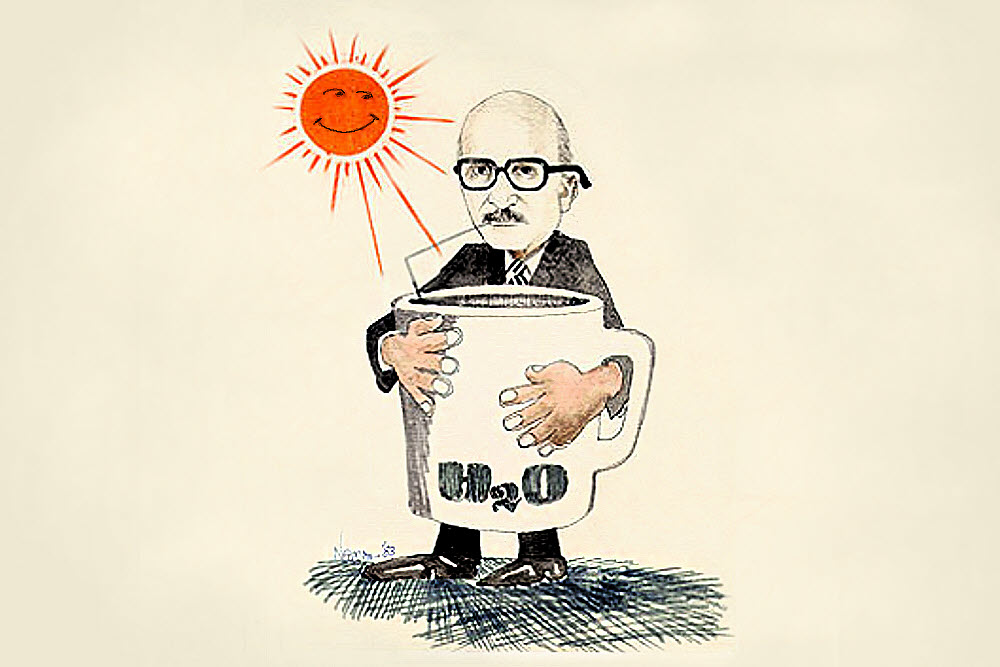
Professor Acra's results were first widely published in a booklet put out by UNICEF in 1984, but I bet you haven't heard of them before, or him. Since 1991 The Swiss Federal Institute of Aquatic Science and Technology has been testing this process, which is easy for almost everyone to use, though it's practical only on small scales (so far).
Sounds too good to be true? Here's what SODIS has been proven to kill:
- Bacteria: Escherichia coli (E.coli), Vibrio cholerae, Streptococcus faecalis, Pseudomonas aerugenosa, Shigella flexneri, Salmonella typhii, Salmonella enteriditis, Salmonella paratyphi
- Viruses: bacteriophage f2, rotavirus, encephalomyocarditis virus
- Yeast and Mold: Aspergillus niger, Aspergillus flavus, Candida, Geotrichum
- Protozoa: Giardia, Cryptosporidium
As long as the water is clear, the bottles aren't damaged or opaqued by scratches, the sun shines, and the water inside the bottles can warm up a moderate amount, the process works. PET plastic leaches almost no stray chemicals or heavy metals into the water, and the process imparts no strange tastes or smells.
Well, sounds perfect if you have six hours every day to sit around and let your water purify. True, this is not going to be used on many backpacking trips, but it is an option, another trick to keep in your pack for those times when you just might need another option. I'm guessing that a Platypus bladder might work even better than a round soft drink bottle, which does not have an ideal shape, so a stray lightweight backpacker laid up for a few days might find this viable.
One that requires no mechanical skills or pumping. A self-sterilizing miracle.
More info.
The Sodis Reference Center
SODIS at Wikipedia
